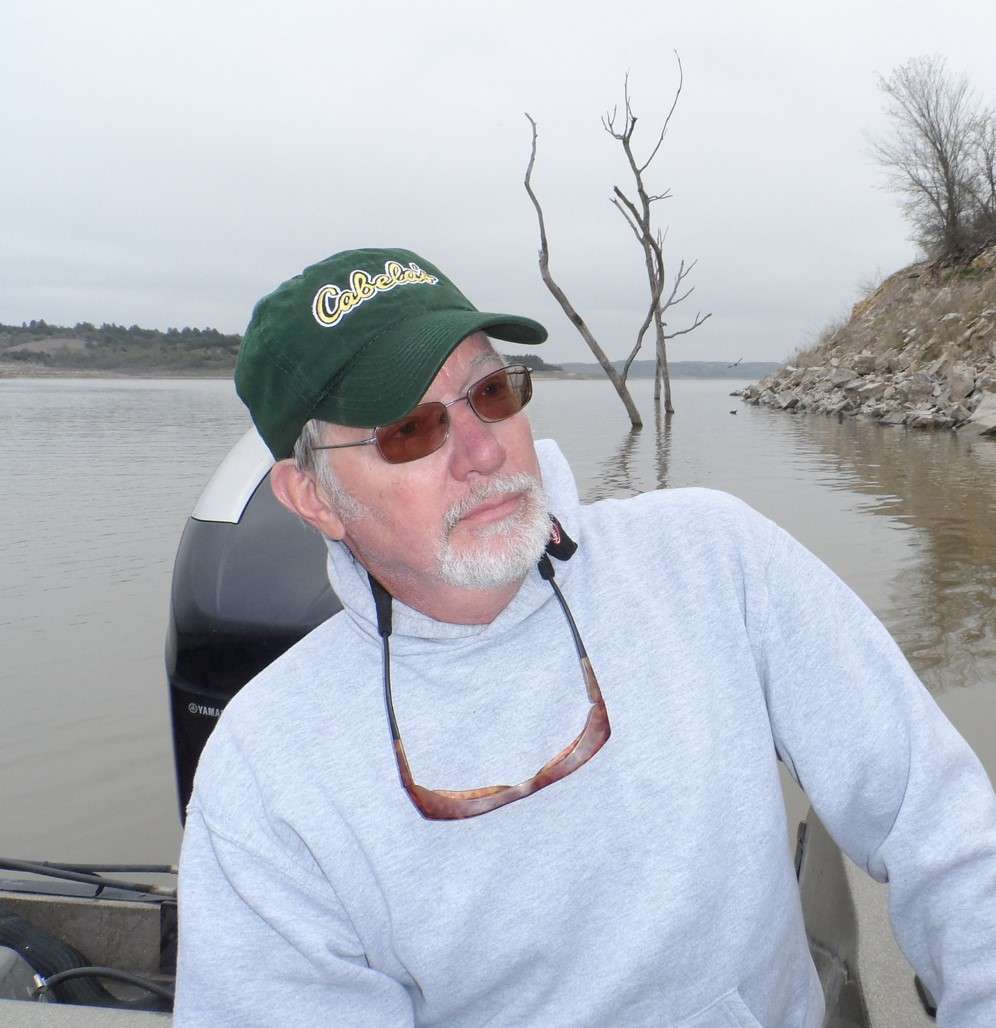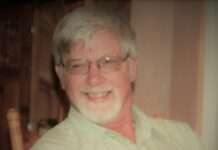I occasionally help provide programs for the independent and assisted living portion of our local nursing / retirement home, Pleasant View Home. Monday, we welcomed Don Johnson from Valley Center, a falconer and member of the Kansas Hawking Club. With Don were Meagan, one of his two Harris Hawks and Apollo his Barn Owl. I met Don through a mutual friend back in 2017.
Don and his wife Carole both had successful careers as manufacturing engineers in England where they lived about an hour south of London’s Heathrow airport. Carole’s company asked her to move to the U.S. to operate one of their facilities in Kansas. They liked life here in the U.S. and they saw this as an opportunity for Carole to advance within her company, so the deal was accepted. Don had always worked for American companies, so work and vacations had brought them stateside many times to cities like Las Vegas and Manhattan, NY, but upon hearing their destination this time, they looked at each other and wondered aloud “Where’s Kansas?”
The 3 birds Don brought to the states all came from the UK, and the process of getting them here took several months and cost the price of a good used car. To own birds of prey and be a falconer in the U.K. no license, permit or even knowledge of falconry is required. Here in KS, Johnson had to navigate a process where he first got a licensed Kansas falconer to sponsor him as an apprentice. Next, he had to pass a written test with at least an 80%, then have the housing facilities for his birds built and inspected by KS Dept of Wildlife, Parks and Tourism at which point he became an apprentice falconer. Two years later, he became a licensed general falconer here in Kansas.
Johnson has 2 Harris Hawks, a male named Jasper and a female named Megan, and a Barn Owl named Apollo. During his program, Don stressed several times that becoming a falconer is a very big commitment. Birds of prey kept by falconers must be flown year-round as frequently as possible and must be weighed often to keep their weight within certain strict parameters that allow them to fly and to hunt. Don has a whiteboard in his shop where he records the daily weight of each bird and what he feeds them daily. During hunting season, he actually hunts with the birds as often as possible. Megan was Johnson’s first bird and she was rescued from a situation where she’d been kept in a tiny 6-foot square enclosure and not flown for 2 years. Johnson kept Jasper 9 months for a friend, then acquired him when the friend decided he didn’t want him back. His first Barn Owl named Zola was purchased from a breeder in the U.K. Zola died a couple years ago, having contracted west nile disease from a mosquito bite, so Don bought Apollo.
A housing facility for birds of prey is called a “mew,” and Johnson constructed a beautiful facility with a covered portion that has raised perches and an attached flight pen where Megan and Jasper live when he doesn’t have them out flying and hunting. Apollo has a pen of his own, and is kept separate from the 2 hawks. Harris Hawks are not native to Kansas, and the nearest they are found to us in the wild is Arizona. Harris Hawks are known as “wolves of the sky” and in the wild often hunt in groups. Johnson says Megan and Jasper will hunt with his dogs; as the dogs walk through a field, the birds will set high in nearby trees awaiting the dogs to flush prey, and they will keep abreast of the dog’s progress by relocating from tree to tree as the dogs move ahead.
Don’s story-telling ability and his wonderful British accent make him very entertaining to listen to, and his enthusiasm for falconry and his knowledge of the sport are immediately apparent when he shows-off his birds. His love of our country is infectious, and I think it would do us all well to listen to a few of his reasons why. Birds of prey are some of the most amazing and beautiful results of God’s Creation, and again give us more good reasons to explore the outdoors here in a land called Kansas!
Steve can be contacted by email at stevenrgilliland@gmail.com.





